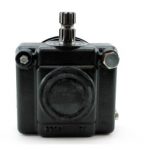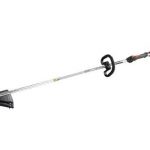The cacophony of lawn tools in the early morning is about ready to get up and going, especially in suburban neighborhoods where everyone is close together and has a limited period of time during the week. Not everyone is a big fan of this – especially folks who would rather sleep in, or who work on different schedules.
Courtesy: Stan Shebs
Additionally, noise pollution can be harmful. The average lawn mower clocks in at around 90 decibels – dangerous to human ears. If you have to deal with this week in and week out, it can cause long-term hearing problems, even hearing loss. It’s not just mowers, either – hedge trimmers, weed-whackers, and anything else that uses power creates noise and adds to the suburban chorus. Thankfully, there are some things you can do the reduce then noise pollution you give off.
Noise-Reduction Equipment
If you’re looking at purchasing a new mower, check out some of the new models offered by Briggs and Stratton or Craftsman. Using specially designed fuel governors and blades, these units reduce the noise of the engine by half. What they have done for lawn mowers, Stihl has done for a leafblower – through the use of sound baffles, they developed the BG66L, which reduces the whistling noises. Of course, the manufacturers aren’t going to give this to you cheaply – these specially-designed units generally run $50-$60 more than their equivalent units without noise-reduction modifications.
For lawn mowers, there are aftermarket mufflers that can be used to replace stock mufflers. With extra baffles, these will reduce the noise from the exhaust, but won’t reduce the noise from the engine or the blades. It will cut a few decibels, but may not justify the cost.
Change Your Method of Power
Sometimes, switching from gas-powered to electric will help to reduce noise levels. While this is not always the cause – much of the noise from powered equipment is due to the blades – it’s still possible. Black and Decker’s CM series regularly logs in around 62 decibels, compared to the 74-80 from a conventional lawn mower. This might not appear to be a huge amount, but decibels increase incrementally – this difference is the same as that between a normal conversation and a garbage disposal.
Go Manual
Yes, using manual equipment can be a little more strenuous and requires a bit more effort. What it doesn’t require is hearing protection – using a reel power over a powered push mower or a set of shears over a hedge trimmer means you can leave your ear protectors in the shed. It will also reduce your gas bill and give you a bit of a workout, both of which can be beneficial.
Maintenance
Even a mower made to reduce noise or powered by an electric engine can cause plenty of noise if it isn’t maintained properly. Improper balance of moving parts and lack of oil where needed can raise quite a racket. Aside from lawn mowers, this can effect string trimmers – the string guard and mower housing can be modified to dissipate sound or avoid the string from scraping against the guard.
So do your neighbors – and yourself – a favor and bring the noise level down a bit this year.






